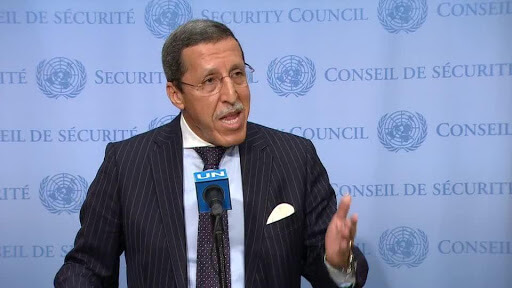Algeria recalled its ambassador to Morocco on Sunday over comments made by the Moroccan envoy to the United Nations (UN), Omar Hilale, on the right to self-determination of Algeria’s Berber minority during a meeting of the Non-Aligned Movement at the UN headquarters in New York earlier this month. Hilale’s remarks were in response to Algeria’s support of the Polisario Front over the Western Sahara dispute.
While referring to Algeria’s Tamazight-speaking minority, commonly known as Berbers, Hilale said, “The valiant Kabyle people deserve, more than any other, to enjoy their right to self-determination fully.” He urged Algeria not to deny the rights of Berbers while supporting self-determination for Western Sahara.
Apart from recalling its ambassador, Algeria indicated the possibility of taking more measures in response to Hilale’s comments. However, the Algerian government is yet to specify what these additional measures could be. The Algerian Foreign Ministry called Hilale’s statement “adventurous, irresponsible, and manipulative” and accused Morocco of supporting a “known terrorist group” in a possible reference to the Movement for the Autonomy of Kabyle (MAK). “The statement directly attacks the principles and agreements that build Algerian-Moroccan relations. It constitutes a flagrant violation of international law and the Constitutive Act of the African Union,” the Ministry said, adding that it “has the right to expect a clarification” from Morocco.
Berbers are “the indigenous inhabitants” of North Africa, specifically Algeria, Morocco, Tunisia, and Libya. Berbers in Algeria constitute around one-quarter of the population and are concentrated in the mountainous regions of Kabyle, Aurès, the M’zab, and the Sahara. They oppose the Arabisation of their culture and have been agitating against the Algerian government to recognise their language and culture, along with calls for an independent state of Kabyle. Algeria opposes any call for independence and has labelled the Berber separatist group MAK as a “terrorist organisation.”
Also Read: US Conducts Military Drills In Morocco Near Disputed Western Sahara
Morocco’s support for the Berbers is a direct product of Algeria’s backing of the Polisario Front, which seeks to liberate the disputed Western Sahara from Moroccan “occupation.” Algeria has provided the Polisario Front with arms, political support, and financial aid in its decades-long conflict with Morocco. It also hosts Brahim Ghali, the Polisario Front chief and President of the Sahrawi Arab Democratic Republic, the government in exile of Western Sahara.
After colonial power Spain withdrew from North Africa in 1975, Morocco claimed virtually 80% of Western Sahara. The Sahrawi people took the remaining area, whose national liberation movement is known as the Polisario Front. They seek to establish an independent Sahrawi Arab Democratic Republic (SADR), which Morocco has refused to accept, leading to a 16-year war between the Polisario Front and Morocco. A United Nations (UN)-brokered ceasefire was established in 1991, with a path towards a referendum on the region’s future. However, this vote was never set up, leaving the concerns of both sides unaddressed. While Morocco has offered to provide autonomy to the SADR, this deal has been rejected by the Sahrawis, who wish to attain full sovereignty.
In December 2020, former United States President Donald Trump recognised Rabat’s claim over Western Sahara in return for its recognition of Israel. A month before Trump’s recognition of Moroccan sovereignty, the Polisario Front broke the 30-year-old ceasefire by declaring war on Morocco. Since then, both sides have attacked each other, leading to fears of a new battle over the Western Sahara.

